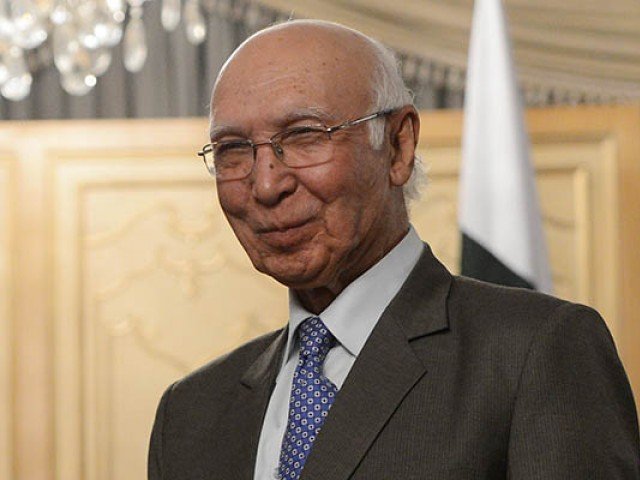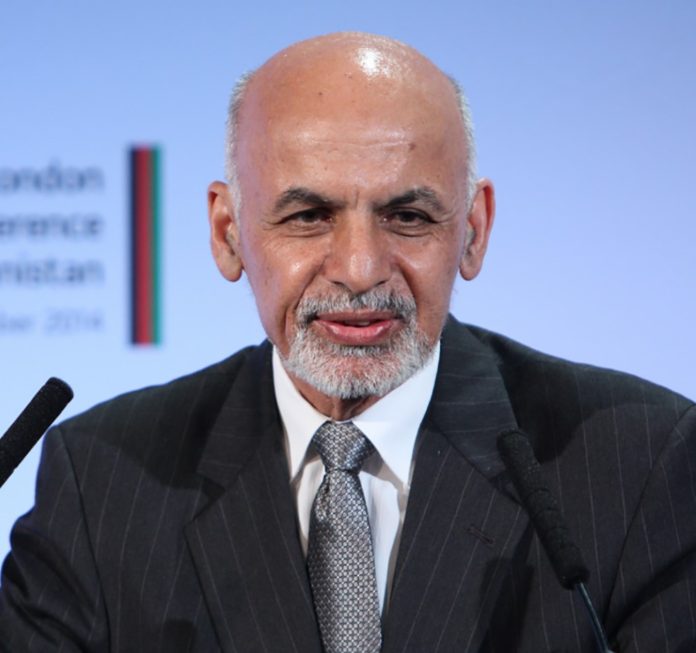As usual, Afghan President Ashraf Ghani has blamed Pakistan for a series of bombing attacks in Kabul during recent days. Instead of focusing on capacity building of Afghan National Security Forces (ANSF), the dysfunctional Afghan government feels it convenient to vent anti-Pakistan venom and go into another slumber till the next attack. An emerging strategy embodies arranging government sponsored demonstrations outside the Pakistan embassy to present a fake public façade of anti-Pakistan feelings. With security deteriorating, there are speculations of Afghanistan’s government collapsing and the country sliding down into another spell of chaos. The attack in highly sensitive diplomatic areas of Kabul may be a deliberate attempt to alarm Western diplomatic missions making it more pertinent for diplomatic missions to suggest increase in the US security reinforcement.
This methodology helps in covering oft pointed out deficiencies in combat readiness of NATO-ANSF combine. Duo faces an uphill task in neutralizing the Taliban and other insurgent groups. Taliban already control more than half of Afghanistan’s populated areas, and hence do not need to have sanctuaries in Pakistan. The US, in all likelihood, is not committed towards achieving a stable and peaceful Afghanistan, and blaming Pakistan helps it in diverting attention from this intent.
“Afghanistan is currently doing badly both in the fighting and in its civilian politics, governance, and poverty,” Anthony Cordesman, an analyst with the Center for Strategic and International Studies (CSIS), concluded in a June 05 report. “It is clear that half measures—simply keeping today’s numbers of troops are highly unlikely to work, risk losing whole provinces over time, and will not press the Taliban into serious peace negotiations”, the report added. Report recommends to the US that “No commitment should be open ended. The Afghans have to do far more, and do it far better, to justify each future year of US commitment” It should make it clear that it can and will leave in the face of Afghan failure”.
After the recent attacks in Kabul there were numerous anti-Afghan government protests demanding accountability of ANSF with regard to their incapability to arrest the never ending terrorist attacks. The protestors demanded resignation by President and the Chief Executive. To counter the popular sentiment Ashraf Ghani held a press conference and called upon the world to make good on a promise to end state-sponsored terrorism. He also made use of the forum of June 06 Peace Conference in Kabul to air similar sentiments. The Conference was attended by delegates from 23 nations, including Pakistan.
Ghani has once again indicated that he wants peace talks with the Taliban, but said that it wasn’t an “open-ended” opportunity. “If the Taliban wants to join peace talks, the Afghan government will allow them to open an office, but this is their last chance,” he said. He informed the conference participants that during the last two years, over 75,000 Afghans had been killed or wounded.
Interestingly, nobody claimed the attacks in Kabul. Afghan Taliban spokesman Zabiullah Mujahid has strongly denied any involvement in the attacks and said that Taliban leadership had issued instructions against targeting any civilian or civilian facilities. Afghan Taliban says it could be a conspiracy to pave the way for more foreign troops in Afghanistan. Afghanistan’s intelligence outfit was quick to point fingers towards usual the scapegoats— Haqqani Network and Pakistan for a bombing outside the diplomatic Green Zone in Kabul which killed at least 150 people and wounded more than 450. In a knee-jerk reaction, the Afghanistan-Pakistan friendly cricket match was canceled which was scheduled next month in Kabul. Commenting on Ashraf Ghani’s intent for peace talks, Zabiullah Mujahid termed Afghan government’s peace process as “fake” and that talks may be held on withdrawal of foreign troops from the country.

Pakistan has termed Afghan government’s blame as “unwarranted”, and advised that instead of blaming Pakistan, Afghanistan needs to look inward and identify the real issues. Pakistan’s foreign affairs adviser Sartaj Aziz “strongly rejected the baseless and unfounded allegations”. Pakistan’s Ambassador to UN Maleeha Lodhi rightly urged Afghanistan to focus its attention to overcome the deteriorating security situation in the country instead of blaming Pakistan. She said Pakistan is ready to extend every assistance to Afghanistan but Kabul will have to give up attitude of accusing Islamabad for its internal problems.
US President Donald Trump is now contemplating deployment of 3-5,000 extra troops to Afghanistan. Many are skeptical whether such a meager addition could defeat the Taliban. Trump has a strong track record of supporting an unconditional troop withdrawal from Afghanistan and New York Times recently reproduced some of Trump’s quotes of yesteryears in a June 03 article “Obama’s Dilemma on Troop Surge in Afghanistan Now Vexes Trump” by Mark Lander and Eric Schmitt. During 2012 and 2013, Trump expressed his feelings about Afghan war a number of times; excerpts: “It is time to get out of Afghanistan…We are building roads and schools for people that hate us…Why are we continuing to train these Afghanis who then shoot our soldiers in the back…Time to come home…We should have a speedy withdrawal. Why should we keep wasting our money rebuild the US!” He is not inclined to approve an addition of 5000 soldiers, the Pentagon is now working on a 3000 option, and that too half of this number is envisaged to be pooled in by NATO allies.
Taking advantage of the void, India is trying to impose the Sri Lanka model on Afghanistan. Over the years it has been employing its subversive elements stationed in Afghanistan with the connivance of Afghan government to carryout subversive activities in Pakistan. These very same elements have also been systematically employed, without the know of Afghan government to deteriorate law and order situation in Afghanistan to bring Afghan government to a point where it should request India to station its troops in India. During yesteryears, India had employed Tamil Tigers to cause similar conditions in Sri Lanka.

India is eyeing to send a division of its troops to Afghanistan. Reportedly Ajit Doval had recently met with Afghan National Security Advisor Hanif Atmar in Russia and had asked Afghan government to deliver an official invitation to the Indian Government to dispatch Indian troops on the pretext of protecting Afghan leadership. Afghanistan’s pro-Indian lobby had been trying to exploit the blast for its own gains and objectives and has increased anti-Pakistan propaganda despite the fact that Pakistan’s embassy staff had also become victim of these blasts in Kabul’s diplomatic enclave.
Two days before the Kabul attack(s), the Afghan Pajhwok news agency had reported that India could send its troops to Afghanistan. “New Delhi could perhaps be persuaded to send up to a division of Indian troops – around 15,000 to Afghanistan under a United Nations Peacekeeping mission.”
India is desperately trying to convince the Trump Administration to allocate India a military role in Afghanistan, it could be notional or potent. It is difficult to predict whether the US and NATO will allow India to send a large contingent to Afghanistan. It will certainly breach Pakistan’s redline and disrupt Russia and China’s efforts to negotiate a peace deal in Afghanistan. However, from realpolitik perspective, induction of Indian military into Afghanistan in anti-Taliban role suits Pakistan. It will be perfect to see Taliban making mincemeat out of Indian soldiers who are neither trained nor equipped to handle the kind of military situation prevailing in Afghanistan. Predictably, India will soon end up fixating its 2-3 divisions in Afghanistan and Taliban would start paying back India in Kashmir and other insurgency inflicted zones of India. And soon India would end up losing whatever good will it has amongst Afghan people.




